The conversation from Nepali chapter 10 is about the importance of diversity in society. Ghanshyam raises the question of how diversity affects our society’s progress. Vekhamaan agrees, saying that diversity is our identity and wealth, but Ghanshyam wonders how identity is recognized once there is diversity. He questions if identity is distinct when there’s diversity and how we can recognize those who are marginalized. This highlights the need to discuss how our society can embrace diversity and ensure fairness and equality for everyone.

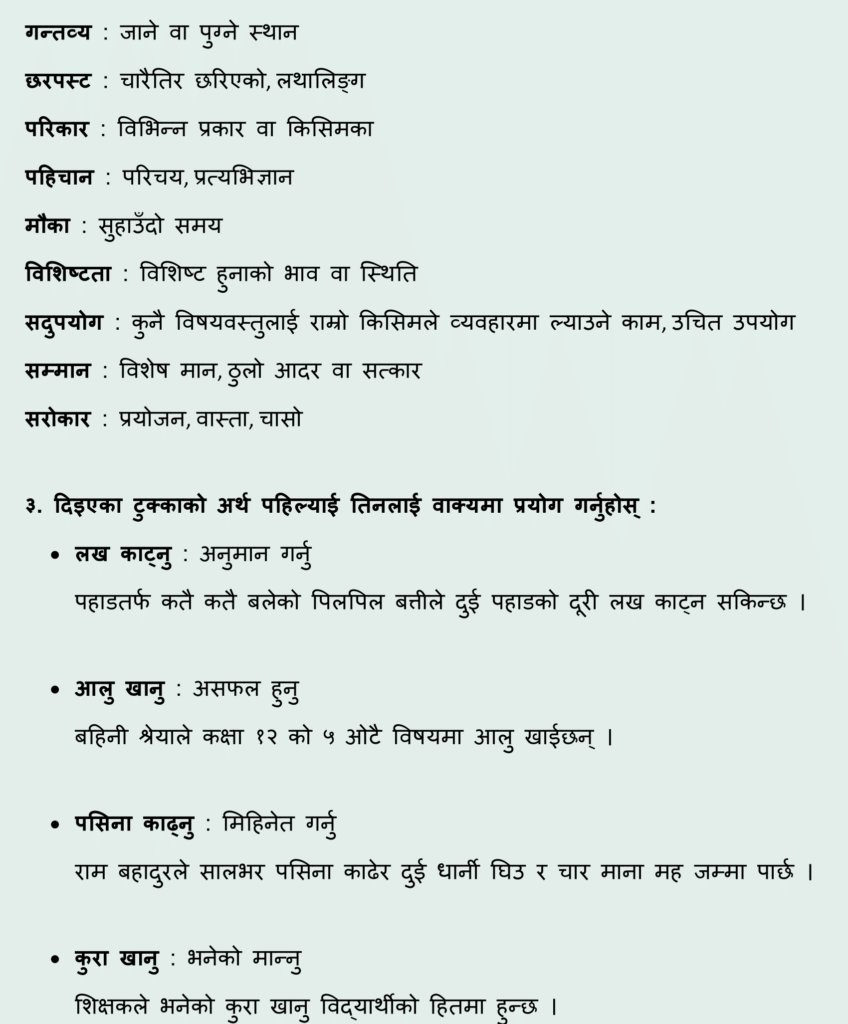
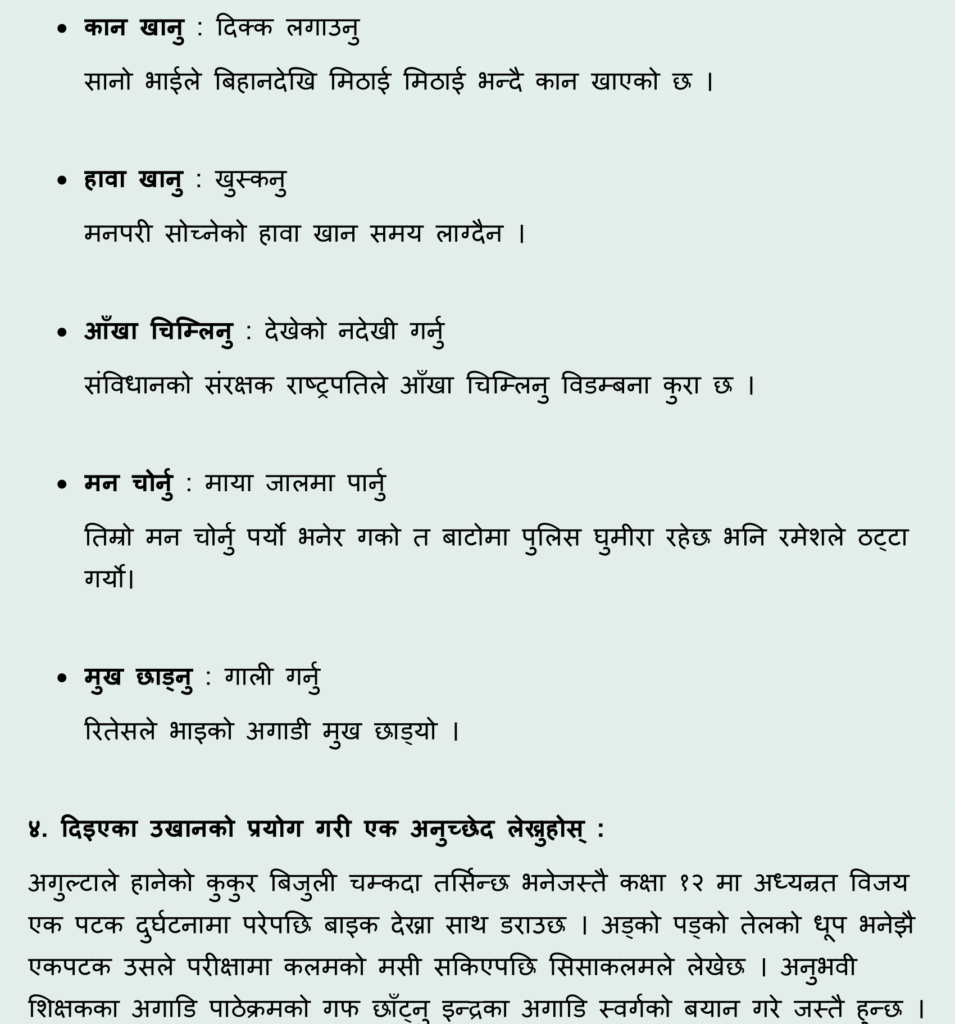


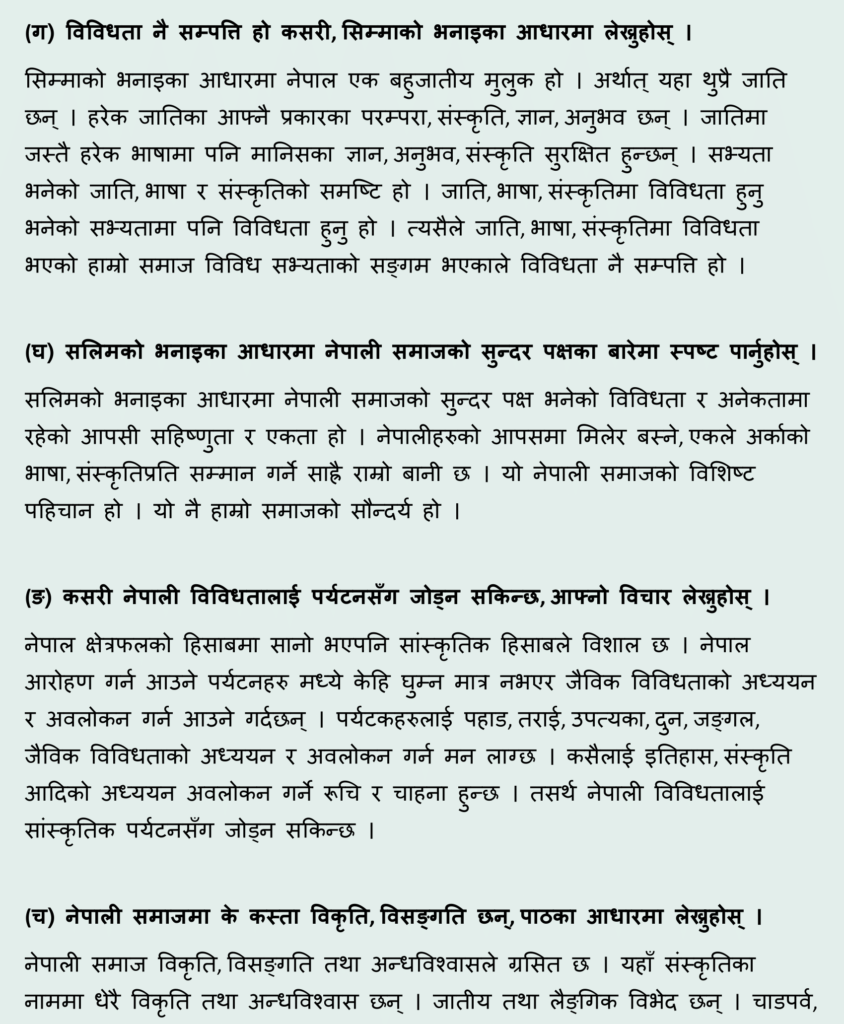

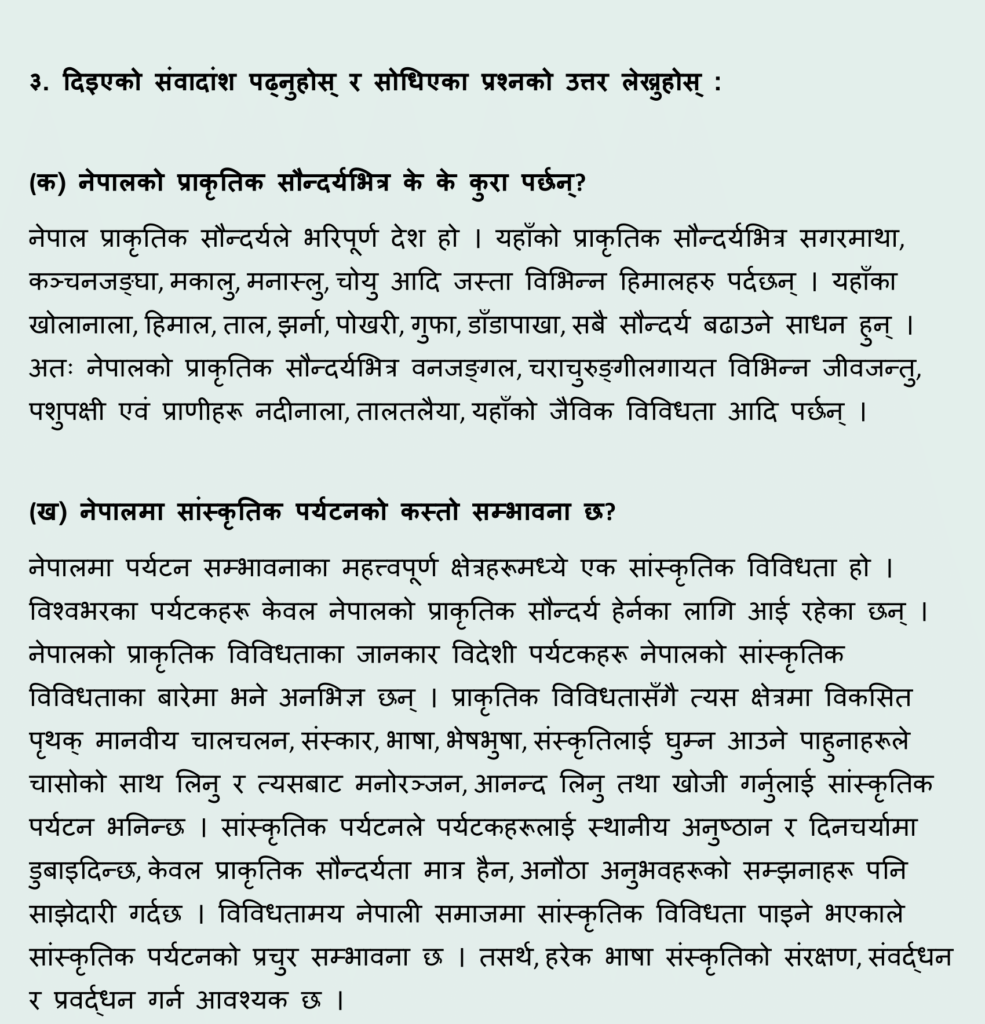
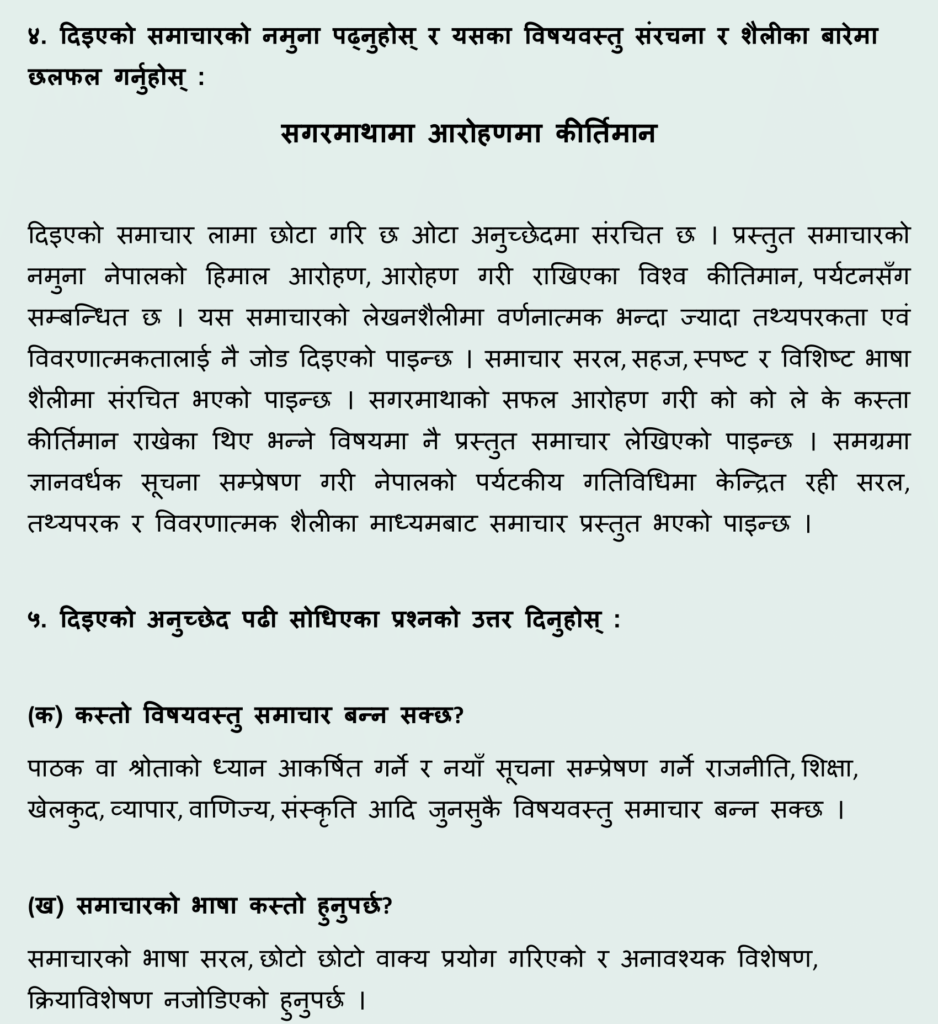
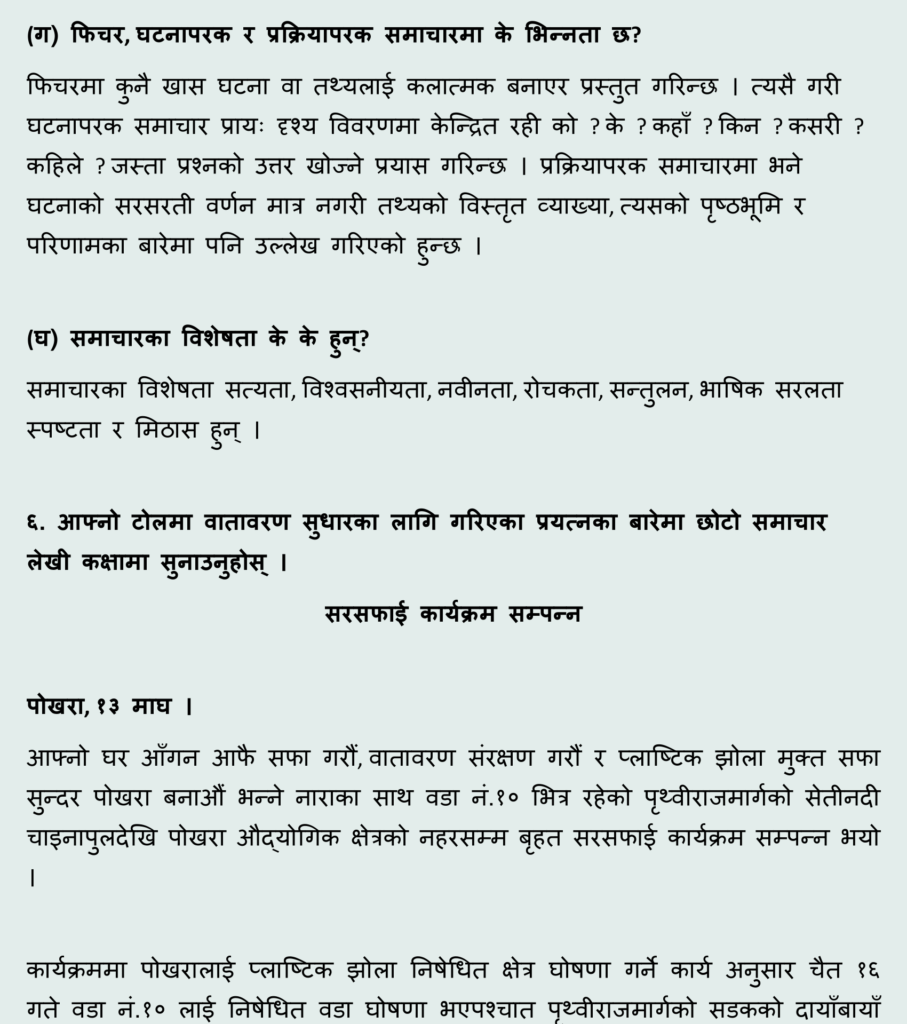
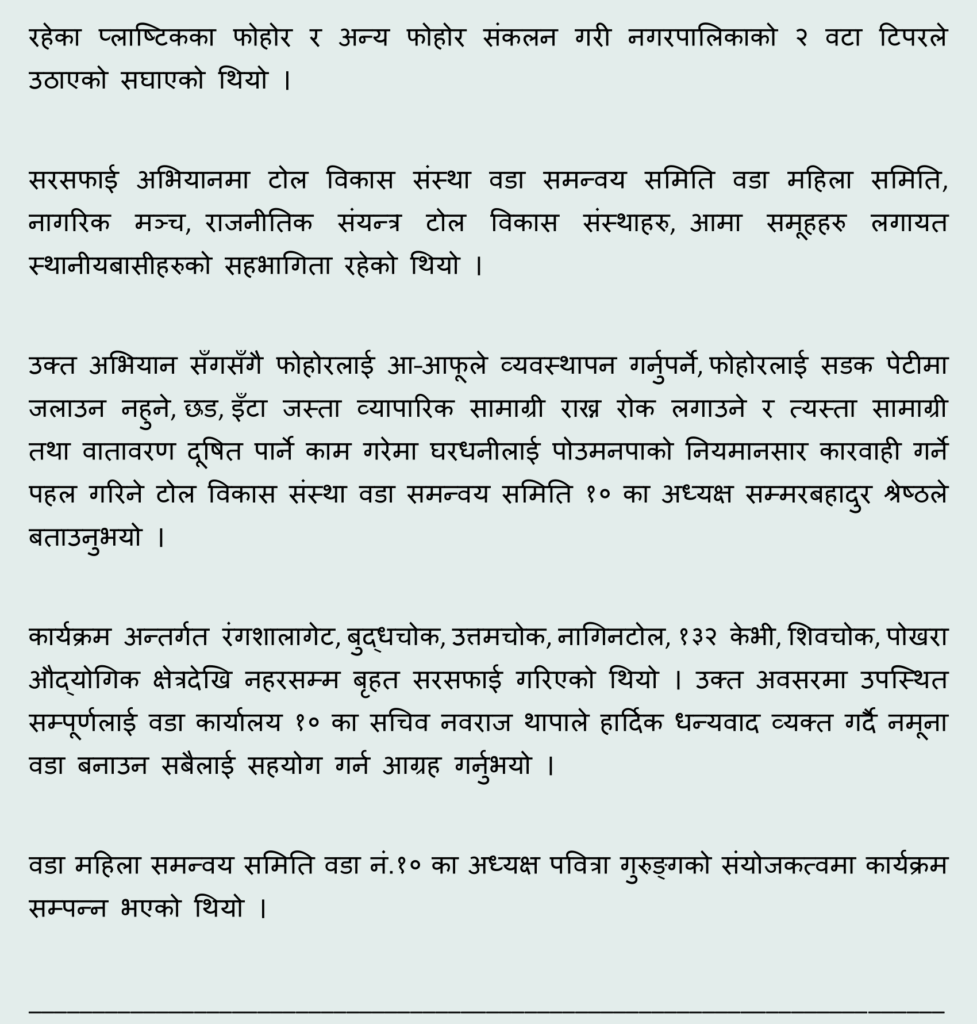
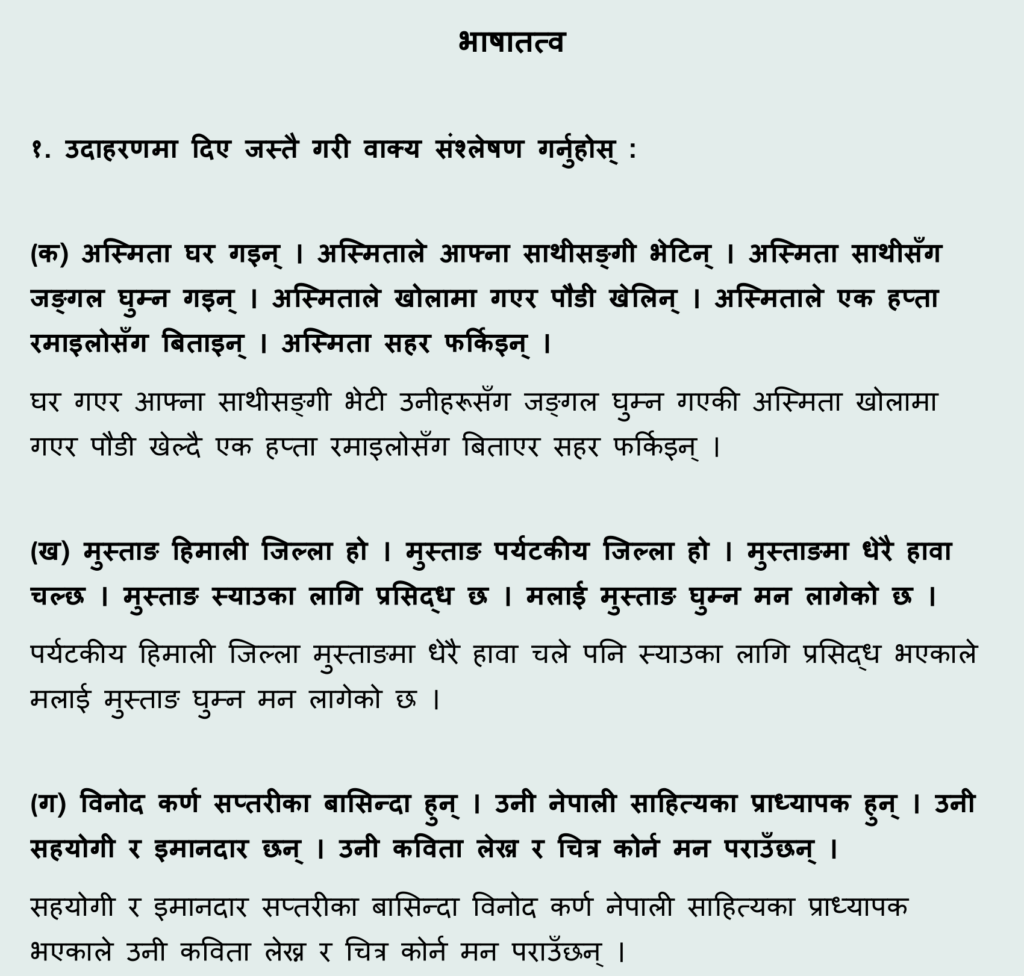





Class 12 Nepali All Chapters Solutions
You can find the exercise, Solutions and PDF of the class 12 Nepali here. Click the above button.
Summary of Nepali Chapter 10
The conversation from Nepali chapter 10 discusses the importance of education in dispelling superstitions, bad practices, and wrong beliefs. It emphasizes that education plays a vital role in shaping human consciousness and is the key to societal development. Without proper education, superstitions, bad practices, and wrong beliefs cannot be eradicated. Education acts as a powerful tool to control superstitions, bad practices, and wrong beliefs, even from early school years, by teaching about them as social offences. It suggests that advancements in science and technology can help combat such issues effectively. Educated individuals can prevent the spread of superstitions and discourage those who believe in them. Ultimately, the passage highlights that education is the beacon of knowledge that can eliminate superstitions gradually, making everyone enlightened. It also stresses the significant role students play in this process.
Education: The Key to Eradicating Superstitions and Malpractices
The conversation in Nepali Chapter 10 highlights the crucial role of education in eliminating superstitions, malpractices, and outdated customs that hinder societal progress. Education, akin to a third eye, empowers individuals with knowledge, broadens their horizons, and lays the foundation for positive change.
The absence of proper education breeds ignorance, allowing superstitions and malpractices to flourish. Education serves as a powerful tool to combat these societal ills. Introducing education at a young age, emphasizing the detrimental nature of superstitions and malpractices, is essential.
In today’s technology-driven world, while the world has advanced through scientific advancements, we, unfortunately, remain trapped in outdated mindsets. Education empowers individuals to challenge superstitions, discourage others from engaging in them, and ultimately, dismantle the roots of these harmful beliefs.
As students, we play a vital role in promoting education and dispelling superstitions, gradually illuminating society with the light of knowledge.
Key Points:
- Education is crucial for eradicating superstitions and malpractices.
- Education broadens horizons and empowers individuals to challenge harmful beliefs.
- Education serves as a tool to combat superstitions and promote positive change.
- Implementing education at a young age is essential.
- Students play a vital role in promoting education and dispelling superstitions.
FAQs
What is the main theme discussed in Nepali chapter 10- Nepali Pahichan about education?
The main theme is the role of education in dispelling superstitions, bad practices, and wrong beliefs.
How does education contribute to societal development according to Nepali chapter 10- Nepali Pahichan?
Education helps shape human consciousness and serves as the foundation for societal progress by eradicating superstitions, bad practices, and wrong beliefs.
What does Nepali chapter 10- Nepali Pahichan suggest regarding the impact of education on controlling superstitions and bad practices?
The passage suggests that education acts as a powerful tool to control superstitions, bad practices, and wrong beliefs, even from early school years, by teaching about them as social offences.
How does Nepali chapter 10- Nepali Pahichan propose that advancements in science and technology can aid in combating superstitions and wrong beliefs?
The conversation suggests that advancements in science and technology can provide assistance by offering knowledge and understanding that can counter superstitions and wrong beliefs effectively.
According to Nepali chapter 10- Nepali Pahichan, what role do educated individuals play in addressing superstitions and wrong beliefs?
Educated individuals can prevent the spread of superstitions and discourage those who believe in them, contributing to the gradual elimination of superstitions and fostering enlightenment in society.
Where can we find the PDF of the book of Class 12 Nepali?
You can download the class 12 Nepali guide from the Ministry of Education, Science and Technology website.
How many Chapters are there in the Class 12 Nepali book?
There are a total of 12 chapters in the class 12 Nepali book. You can find the exercise of each chapter on the elearningwithguru website.

Leave a Reply